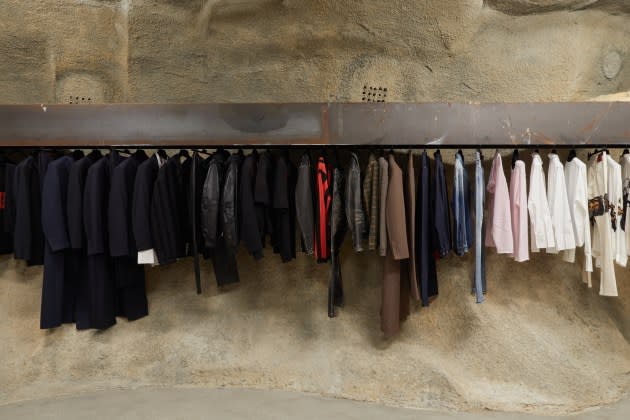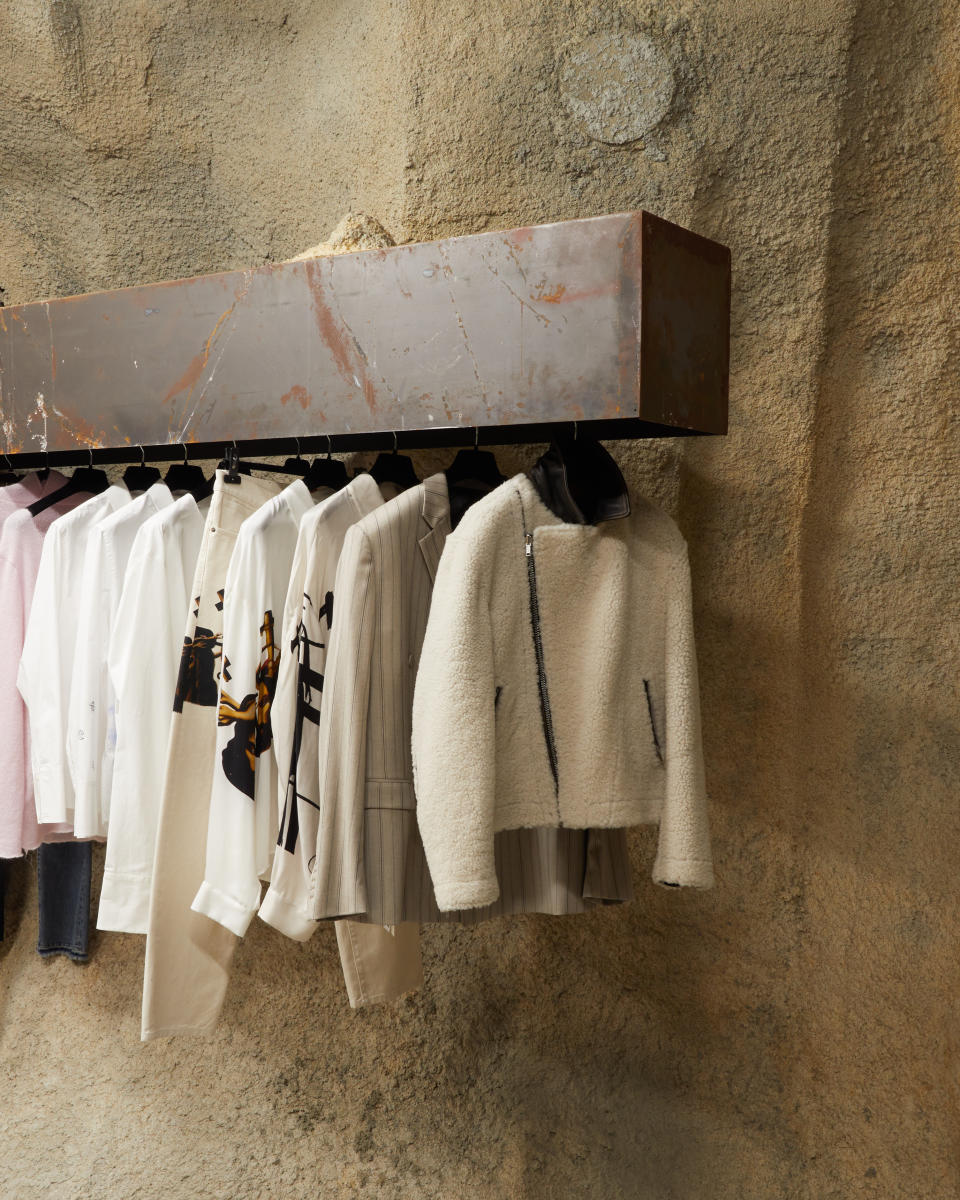Guillermo Andrade Returns to Retail With 424 Flagship on Melrose Place

Guillermo Andrade, who was a pioneer on Fairfax Avenue in positioning streetwear as luxury, is returning to retail — this time on one of L.A.’s toniest shopping streets, Melrose Place. Not without a bit of an underground feel though.
Step into the new 424 flagship at 8441 Melrose Place, and you might think you have entered a cave.
More from WWD
The basement location on the well-heeled shopping street whose tenants include The Row, Balmain and Bottega Veneta is a sharp contrast to the above-ground stores covered in dense ivy and shaded in towering ficus trees.
But this is a new beginning for Andrade. His fashion career started in 2010 when he opened FourTwoFour, a multibrand store on Fairfax where he launched Jerry Lorenzo’s Fear of God and was an early supporter of Rhude, Vlone, Doublet and Second Layer.
Being around all that streetwear pushed Andrade in 2015 to start his own label, which ended up taking a lot of his store’s space until the boutique closed two years ago. But the Guatemalan-born designer continued to grow his brand, which is sold online at his own site and at brick-and-mortar stores Essx NYC, Ssense in Montreal, Selfridges in England and GR8 and Nubian in Japan.
“I thought retail was over when I closed the Fairfax store,” Andrade said, standing inside his new outpost with limestone, concrete and sand splattered on the walls creating a cave effect and a polished concrete floor. His shoe collection is displayed on abbreviated shelves and his shirts, jeans, cashmere and wool tops and leather jackets hang from steel-beam fixtures.
But retail kept tugging at him. “I always knew I wanted to be in this neighborhood, and it is the right time now,” the fashion innovator said.

Andrade’s streetwear journey is a reflection of his growing up in a challenging world where you make the most of what you have. His first years were spent in Guatemala until, at the age of nine, he immigrated to the United States, living with his family in northern California near Richmond and later in Marin County. Those two areas are totally different. Richmond is a working-class city with a 14.3 percent poverty level near a Chevron oil refinery. Marin County is an upscale suburb with a poverty level that is half that of Richmond.
When he was in eighth grade, Andrade begged his father to move because he felt his school was too dangerous to attend. So, the family moved to Marin County where the budding designer was only a handful of non-white students at San Marin High School in Novato. To blend in, he played on the high school soccer team and excelled. But he also began taking old clothes or inexpensive finds and remaking them in his own vision. “I just wanted to send a different message that when people looked at you, they didn’t have a preconceived message.”
After high school, he worked with his father in construction until he went in a different direction. “My father taught me a lot about space and color, how to create and do things,” the fashion creator remembered.
Those lessons have been put to good use. The 424 collection started out as an essential uniform with eight stock keeping units that included trousers, elongated T-shirts and elongated hoodies. Then denim, made and washed in L.A., became very popular because Andrade added a unique red arm band, like those worn by soccer team captains, to his trucker jackets and the backs of his blue jeans.
His reputation grew as the brand grew. Last year, he was named the creative adviser to last summer’s Leagues Cup soccer competition. To promote the tournament, Andrade was tapped to design and develop limited-edition co-branded capsule collections for fans to be sold at stadiums and third-party retailers.
His line has grown too. It is now 100 percent manufactured in Italy, giving a more luxury feel to the collection, priced from $115 to $1,480, which also includes tailoring. “Now we work with fabric mills and make our own fabric from scratch,” said Andrade, who spends half the year in Italy. “We develop our own washes and our own treatments.”
Unique designs are important too. There is worn denim, distressed leather jackets and cupro shirts with graphics. Andrade, looking at a basic white shirt hanging on the rack, explained the small, detailed embroidery on it. The embroidered symbols represent different religions around the world. “I didn’t want anyone feeling left out for any reason,” the designer said. “Because I felt pretty left out when I was a kid.”
Best of WWD

